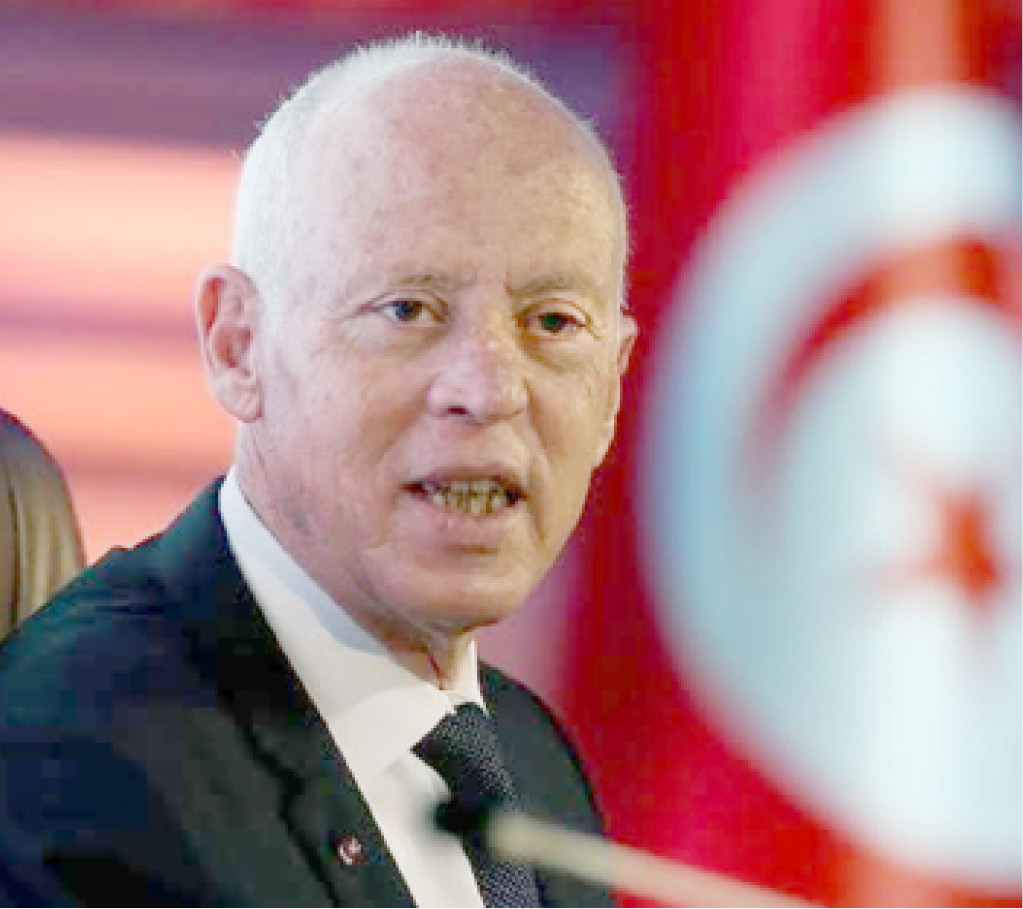African foreign students in Tunisia fearful after racist violence
Thousands of sub-Saharan African students in Tunisia are still fearful after a surge of racist attacks following comments by President Kais Saied…

President of Tunisia, Kais Saied
Thousands of sub-Saharan African students in Tunisia are still fearful after a surge of racist attacks following comments by President Kais Saied against irregular immigration and are seeking concrete steps to protect them.
The violence erupted after Saied blamed “hordes of illegal migrants from sub-Saharan Africa” for most crime in Tunisia and alleged there was a “criminal plot” to change the nation’s demographic makeup.
At the height of the wave of attacks last month, the “feeling of fear was overwhelming,” said Christian Kwongang, president of AESAT, an association representing sub-Saharan African students in Tunisia.
Amid what witnesses described as a “hunt for blacks”, Kwongang recalled that “we had parents in tears who called us, worried about their children being arrested, with some detained for up to two weeks”.
- #NigeriaDecides2023: Factors that will influence Bauchi gov’ship election
- Nigeria’s Inflation rises above 21% amid cash scarcity
Kwongang said his group documented more than 20 assaults against students, “including 10 with knives”, and over 400 arrests.
For more than two weeks, it advised students to stop attending classes and only venture outside in case of emergency.
At least 100 students made emergency repatriations, mostly to Mali, Ivory Coast, Guinea and Niger, said Kwongang, who comes from Cameroon.
“They left because of the wave of racism, arbitrary arrests and numerous cases of evictions” from housing, Kwongang said.
The violence has abated and students returned to classes on March 6.
No physical attacks have been recorded since March 7, but “verbal attacks” persist and the foreign students remain on guard, said Kwongang.
“We are in the observation phase,” he said. “And we are waiting to see concrete things – for example, an acceleration in the granting of residence permits.”
The violence was a “disaster for Tunisia”, which had always been “a welcoming place”, said Tahar Ben Lakhdar, director of the private ESPRIT university.
Saied’s comments represent “an enormous smear”, said the 83-year-old, who stressed that they were also entirely unjustified because “which country does not have foreigners in irregular situations?”
Some educational institutions have since implemented new protective measures – including setting up crisis units, bus transport, and having local students accompany sub-Saharan African students.
Lakhdar said ESPRIT, which specialises in engineering and management courses, has 350 sub-Saharan Africans among its 14,000 students.
He said the university had established “a platform where each student who has a problem can report to dedicated lawyers”.
The government of the North African country has also promised to address the problem.
Malek Kochlef, the Ministry of Higher Education’s director of international coordination, said that “there were some very reprehensible attacks” but claimed that “they were isolated acts”.
He told AFP the ministry had responded by establishing communication units and contact points in each educational establishment to report any incidents.
